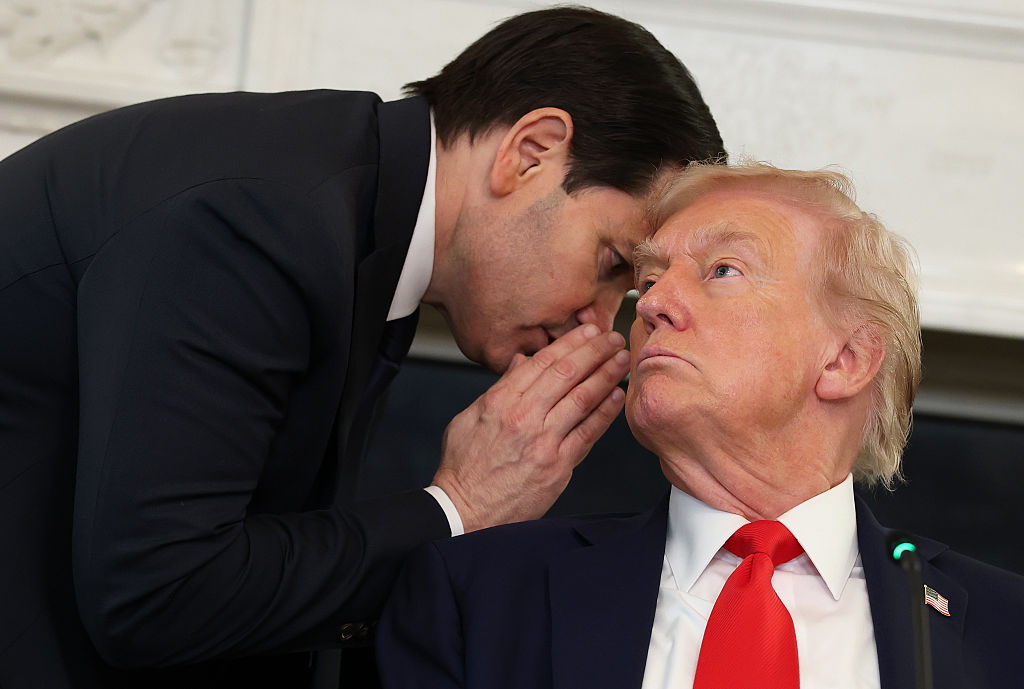Don’t Do It, Mr. President
U.S.-led regime change in Venezuela would worsen the problems Trump promised to fix.

Donald Trump did not campaign on a program of U.S.-led regime change in Venezuela. Somehow, though, he is on the verge of doing just that. His administration has sent a Marine Expeditionary Unit to the region, and now has ordered the USS Gerald Ford and its carrier strike group to the Caribbean as well. The Trump administration appears to have a round chambered with the Venezuelan dictator Nicolas Maduro’s name inscribed on it.
These moves follow a campaign of standoff strikes against alleged drug boats allegedly headed to the United States. The administration’s case for this precursor action is that they are protecting Americans from dangerous drugs like fentanyl. This argument is flawed; fentanyl doesn’t come to the United States from Venezuela, and the boats in question do not appear to have enough range to reach the United States in any case.
So what are we doing here?
The administration’s public case for its Venezuela policy is insultingly ridiculous. At an October 15 press conference, the president declared that “every boat that we knock out, we save 25,000 American lives.” Considering that there were only around 84,000 overdoses in the United States last year, and that they have so far blown up 10 boats, they should have declared victory and come home seven boats ago.
A cynic would observe that the administration’s invocation of the Alien Enemies Act has run into legal trouble. Among the issues raised by U.S. courts is the fact that the United States is not at war. It is hardly a leap of logic to wonder whether administration officials are thinking, “The courts are saying we don’t have the power because we’re not at war—but that could change.” Taking the United States to war would be a likely remedy for that legal shortcoming.
Supporters of regime change in Venezuela have invoked the Monroe Doctrine, arguing that the United States has long intervened in the Caribbean. The historical referent is wrong here—the Monroe Doctrine was about keeping European empires out of the Western Hemisphere. The Roosevelt Corollary was about policing Latin Americans ourselves.
In any case, the history of American intervention in Latin America ought to counsel restraint and not emulation. Woodrow Wilson’s intervention in Mexico to capture Pancho Villa ended with the outlaw leader still on the lam. Two interventions in Nicaragua bedeviled four American presidents over 20 years. Uncle Sam cut its occupation of the Dominican Republic short after an immediate case of buyer’s remorse, but nevertheless slogged through its occupation of neighboring Haiti for nearly two decades.
By the end of the 1920s, Washington wanted out of the business of regime change in Latin America. Presidents Herbert Hoover and Franklin Delano Roosevelt wisely retrenched from the region. They eschewed the paternalism of their predecessors, judging that the costs of intervention and occupation outweighed the supposed benefits. The White House is drawing the wrong lessons from this ignominious period of American diplomatic history.
Furthermore, proposals for a forcible regime change in Venezuela, presumably through airpower and covert operations, have few direct precedents in the region. Operation Urgent Fury, the 1983 U.S. invasion of Grenada, seized an island of only 133 square miles. The 1989 ouster of Manuel Noriega in Panama was assisted by the already large U.S. military presence in the small, isthmus nation. The heyday of American Banana Wars in the Caribbean was similarly facilitated by collaboration on the ground and incremental intervention.
Such conditions do not exist in Venezuela, as the country is more than twice the size of Iraq and is led by a regime that, at least for now, enjoys the loyalty of the military. If it changes Venezuela’s regime, the White House risks recreating the endless wars and quagmires of the Middle East, but this time in our own neighborhood. The size of the strike package suggests a campaign on the scale of President Barack Obama’s Operation Odyssey Dawn in Libya. The outcome there was chaos, civil war, and open-air slave markets.
Subscribe Today
Get daily emails in your inbox
The administration has made the strange decision to admit to a finding authorizing the CIA to take covert action inside Venezuela. Venezuelans will now attribute anything that goes wrong in their country to American meddling. Maduro’s predecessor, Hugo Chavez, had already blamed one earthquake on the United States. Now that an American president has explicitly authorized CIA operations in Venezuela, an otherwise outlandish claim has gained credibility.
In his second inaugural address, President Trump announced that his “proudest legacy will be that of a peacemaker and unifier.” In his telling, “we will measure our success not only by the battles we win but also by the wars that we end—and perhaps most importantly, the wars we never get into.”
This promise is a far cry from a call for creating a Libya in the Western Hemisphere. Trump should stop listening to the hawks in his administration and recall the promises of his second inaugural.